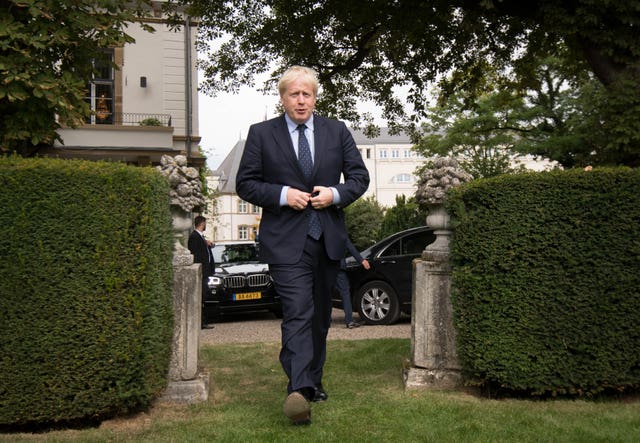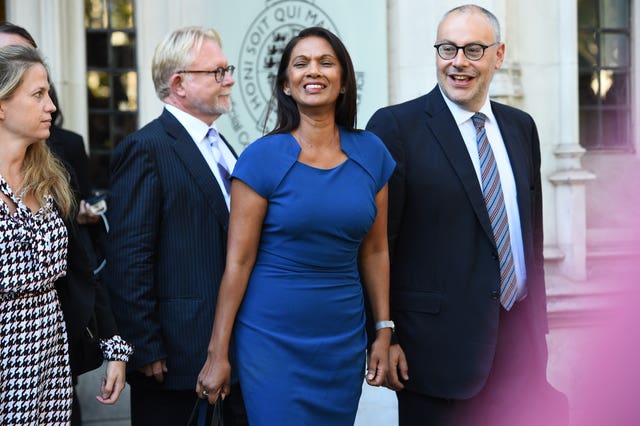Boris Johnson to defend decision to suspend Parliament at Supreme Court
Lawyers for the PM will argue that his advice to the Queen was lawful.

Boris Johnson is set to defend his controversial decision to suspend Parliament for five weeks at the UK’s highest court on Wednesday.
Lawyers representing the Prime Minister will argue that his advice to the Queen to prorogue Parliament was lawful and that, in any event, the court cannot interfere in political matters.
The Supreme Court in London is hearing historic appeals from two separate challenges brought in England and Scotland to the prorogation of Parliament.
Mr Johnson says the five-week suspension is to allow the Government to set out a new legislative agenda in a Queen’s Speech when MPs return to Parliament on October 14.
But those who brought legal challenges against the Prime Minister’s decision argue the prorogation is designed to prevent parliamentary scrutiny of the UK’s impending exit from the EU on October 31.
The court, which is sitting as a panel of 11 justices for only the second time in its 10-year history, must reconcile contradictory judgments issued by the English and Scottish courts.
The High Court in London dismissed the case brought by businesswoman and campaigner Gina Miller, finding that the length of the prorogation was “purely political”.

But the Inner House of the Court of Session in Edinburgh ruled that Mr Johnson’s decision was unlawful because “it was motivated by the improper purpose of stymying Parliament”.
On the first day of the hearing on Tuesday, Mrs Miller’s barrister Lord Pannick QC argued that Mr Johnson’s motive for an “exceptionally long” prorogation was to “silence” Parliament, and that his decision was an “unlawful abuse of power”.
A cross-party group of around 75 MPs and peers, led by SNP MP Joanna Cherry QC, was responsible for the Scottish challenge and the appeal against the Court of Session’s decision is being brought by the Advocate General for Scotland, Lord Keen QC, on behalf of the Westminster Government.
Lord Keen submitted that the courts “must not cross the boundaries and intrude upon the business of Parliament”, and confirmed Mr Johnson will comply with the Supreme Court’s ruling if it finds his decision was unlawful.

On Wednesday, Sir James Eadie QC, representing Mr Johnson, will argue that the Supreme Court has no jurisdiction to rule on the lawfulness of the length of prorogation, followed by submissions from Aidan O’Neill QC for Ms Cherry.
Victims’ campaigner Raymond McCord – who brought separate proceedings in Belfast, arguing that a no-deal Brexit would damage the Northern Ireland peace process – has also been given permission to intervene in the Supreme Court case, and his lawyers will address the court on Thursday.
Mrs Miller’s challenge is supported by former prime minister Sir John Major, shadow attorney general Baroness Chakrabarti and the Scottish and Welsh governments, who are all interveners in the Supreme Court case and will also be heard on Thursday.
Mr Johnson advised the Queen on August 28 to prorogue Parliament for five weeks and it was suspended on September 9.
It is not clear when the Supreme Court judges will give a ruling.





